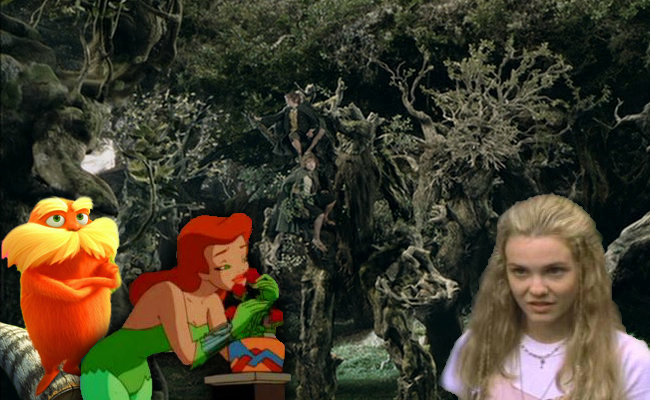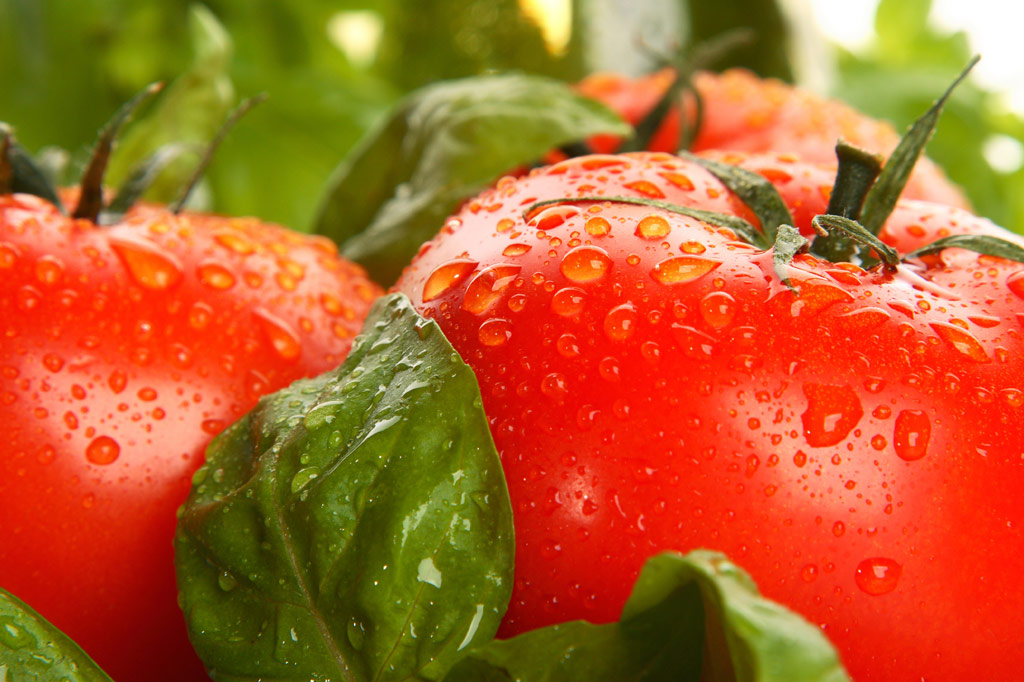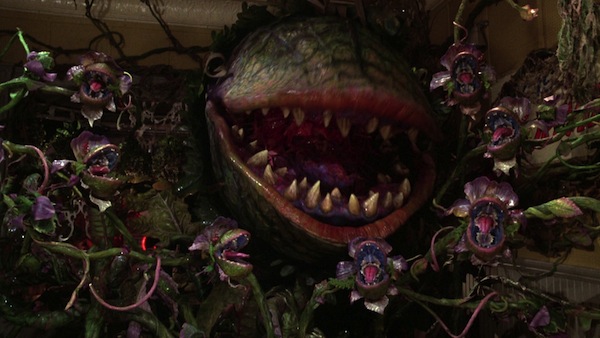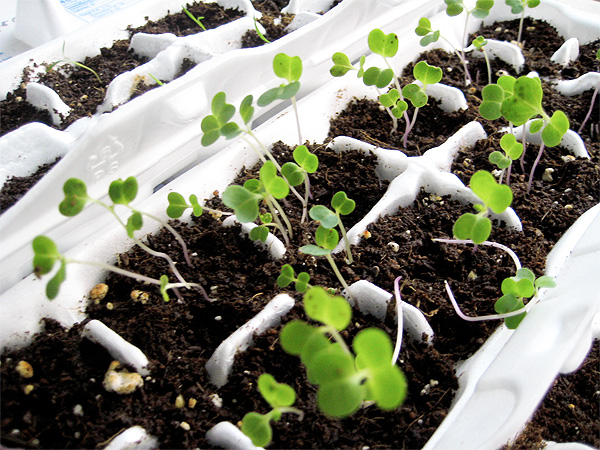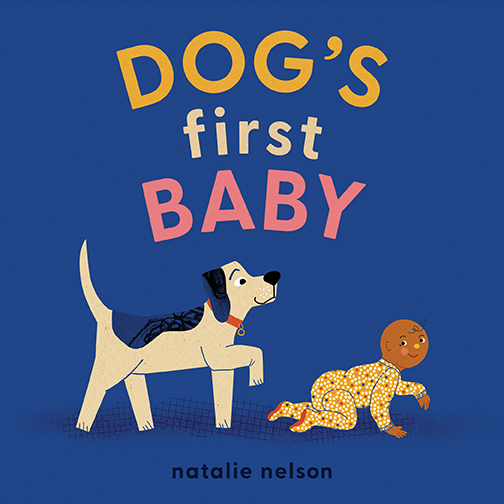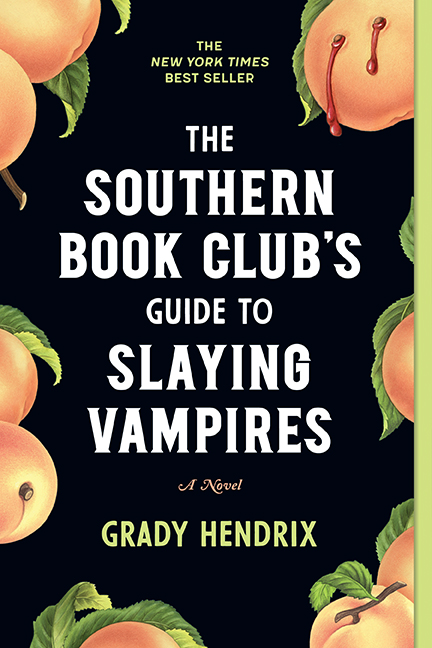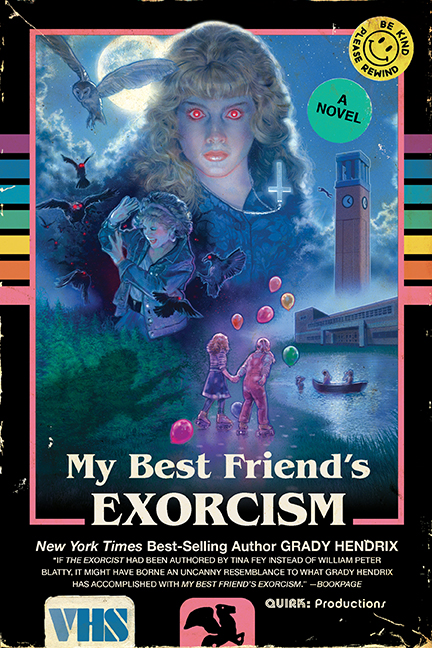Our Blog
The Best Planet Protectors in Literature
There are some people who value the earth so much that they're labeled “tree huggers.” There are others that love the earth so much that they are willing to kick butt for it. In honor of Earth Day, we will examine four characters who are willing to get a little aggressive when it comes to protecting Mother Nature.
Posted by Sarah Fox
As Planting Season Kicks Off, Start With Tomato & Basil
Posted by Sara Rosenstock
Seven Deadly Plants You Don’t Want Anywhere Near Your Garden
Earlier this month, people celebrated (maybe?) Houseplant Appreciation Day, and there really is a lot to appreciate. Adding plants to your home can benefit your health, improve the air you breathe, and reduce your allergies. Their presence also helps relieve stress and keep you happy.
And so, in honor of the greenery that will improve your quality of life, let’s take a minute to celebrate the frightening flora that will actively try to kill you.
Posted by Alyssa Favreau
Happy World Vegetarian Day
Today is World Vegetarian Day. Like many vegetarians (I suppose), I don’t often think about the fact that I’ve given up eating meat. After a while, what was once a life-altering decision becomes second nature…like anything that you do every day, opting out of meat-eating is just one blip in the background noise of your life. So this day is an opportunity for those of us who are vegetarians to revisit that choice, and reconnect with whatever motivations put us on the path to a meat-free lifestyle.
People choose vegetarianism for different reasons, of course. I would guess that ethical concerns are the driving factor in most cases. But extricating oneself from a predator/prey relationship with other living things is not the only possible motivation. For some, a desire—or even a necessity—to protect one’s health can is a powerful reason to eliminate meat from the menu. It’s certainly possible to consume high and unhealthy levels of fat, salt, and calories even while maintaining a vegetarian diet, but combining vegetarian food choices with basic healthy eating habits can be a potent means of lowering one’s risk of many chronic health problems.
And an increasing number of people consider vegetarianism as a critical option for reducing the energy drain, carbon footprint, and waste production that industrial-scale animal husbandry impresses upon our increasingly crowded planet. In terms of efficiency, producing plant-based food is a much more practical use of the resources that a rising, energy-hungry global population demands.
However they come to the decision, many people find that transitioning to a vegetarian diet turns out to be an easier experience than they anticipated. Nevertheless, there are challenges. In my own case, the switch was fraught with particular difficulties. Having been raised as a cannibal, I expect that I struggled with more obstacles than most.
I know how that sounds, but referencing my cannibal upbringing isn’t intended as a brag, or some sort of badge of authenticity. To be honest, the current cannibalism revival that’s cropped up in some hipster circles holds no interest for me (in fact, it strikes me as shallow, trendy posturing not likely to result in widespread acceptance). In my family, cannibalism wasn’t some kind of statement about the anonymity of modern culture, or a means of pushing the boundaries of propriety. It was just the way things were. If, say, Sunday dinner happened to include roast mailman foot, or some breaded elbows, that was no more significant to us than the baked potatoes or string beans. (Though it was also no less significant…even all these years later, the though of my mother’s breaded elbows still makes my mouth water.)
At this point, I feel the need to clear up a few misconceptions about cannibalism. Firstly, and contrary to what you may have read on certain blogs, cooked human flesh is delicious. Many vegetarians downplay the appeal of eating meat, but I think in most cases that’s disingenuous. Just because you choose not to eat meat, that doesn’t mean you can’t acknowledge its gustatory appeal. Steak tastes good, hamburgers taste good. And braised abs of office worker, or a plate of fettuccini with fennel and firefighter fingers…man, those taste really good. Of course, a lot of the flavor is in the preparation. And my mom was an old-school home cook, from the era of liberal use of butter, cream, salt, eyelids… She was raised with the idea that it was a mom’s job to fatten up her kids, mostly by feeding them human fat. I cringe when I think of how many calories and how much cholesterol must have been in mom’s lips-hips-cheese-and-noodles casserole.
So many of our early memories are connected to the foods we ate growing up that becoming a vegetarian can sometimes feel like turning one’s back on one’s own history and traditions. It wasn’t easy for me to reject the turkey dinner that’s so closely tied to our Thanksgiving feasts when all my relatives gathered, enjoying each others’ company as much as the meal. Or the appendix stew that my father always insisted on for his birthday dinner (he was a man of simple pleasures). Food connects us to trivial memories, too. I sometimes wish I could taste again the bland but comforting flavor of the baloney sandwiches my mother made for my grade school lunches, or the greasy take-out chicken we brought with us on summer picnics, or the salty texture of my little brother’s arm as we gnawed on each other to work up an appetite before dinner.
Of course, not all food memories are fond ones. To put another myth to rest, being raised on cannibal cuisine doesn’t mean you enjoy every recipe in the cookbook. I was never a big fan of earlobes, and it didn’t help that my mother would boil them until they sagged limply on the plate like morose jellyfish. Fortunately my older sister loved them, so I could always flip a few her way when mom was back at the stove stirring the sauce. (She would return the favor whenever my mother got ambitious and attempted our Grandma’s recipe for Broiled Radio Announcer Tongue. My sister hated it, but I could never get enough. There’s something about the taste of something that has its own taste buds which I still miss to this day.)

Once, when I was struggling the most with giving up the cookery of my youth, something occurred to me: All of us start out as cannibals. It’s the only truly universal cuisine. Because when you’re in the womb, you pretty much have no choice about it. Afterwards, unless you’re put on formula, you continue the practice for a while longer. Yet even when you move on to mushed squash and peas, you can’t help but suck your own thumb when that craving for human meat kicks in. Or occasionally clamp your jaws around somebody’s finger, even if your baby teeth can’t break the skin. Despites such strong instincts, most people stop eating people at a very young age and don’t look back. And I reasoned that if so many could give up what was, to me, the most delicious food source of all, than so could I.
So if you’re struggling with the decision to give up eating animal meat, consider this. You’ve already given up eating your fellow human beings, and most of them are far more flavorful than any animal could ever be. And in many cases, far more deserving of being eaten.


Posted by Rick Chillot
Sing and then Mate and then Die
by Buzzy the Cicada
Pssssttt…hey, you down there. Yeah, that’s right. Hi. I’m up here, in the tree. You got a minute?
Posted by Rick Chillot
Growing an Herb Garden
Rosemary, basil, parsley, mint: all useful for summer cooking. Buying herbs can get expensive, so wouldn’t it be easier to just grow them yourself? It can be difficult if you don’t have a green thumb, but with these tips you’ll be sure to succeed.
Use An Egg Carton: Planting your seeds in a paper egg carton is a good way to ensure that your seeds can germinate and get everything they need to thrive as a plant. Punch holes in the bottom, put in the soil and seeds, and leave the carton in a place that will allow lots of light. When you see sprouts, you can just bury the carton in the ground along with the sprouts (leaving them above ground, of course). You can also transfer the herbs into pots to keep by your window. The paper will biodegrade and your plants will continue to grow in your garden!
Know What Herbs to Grow: Bringing a plant to life and keeping it alive can be hard if you don’t know what you’re doing. Some plants are tougher than others. You also don’t want to choose herbs that grow very wide or tall if you’re keeping them inside. Some good ones to start with are basil, mint, and parsley.
Use Organic Fertilizer: Fertilizer is a good way to ensure that your plants are growing up healthy and strong. It can also exceed the lifespan of your plants if you’re forgetful about watering them (like I am). For a plant that you’re later going to eat, however, you don’t want to introduce any chemicals to them that you wouldn’t want in your body later. Use compost or store-bought organic fertilizer with your herbs!
Choose the Right Time to Harvest: The best time to pick the leaves off of your plant is right before its flowers bloom. This gives them maximum flavor, whether you choose to use them fresh or dried. If you want to dry them, you can do so by hanging them upside down in a dry place or putting them in the oven at 150 degrees for three hours.
Happy gardening!
Posted by Simona DeDominicis
